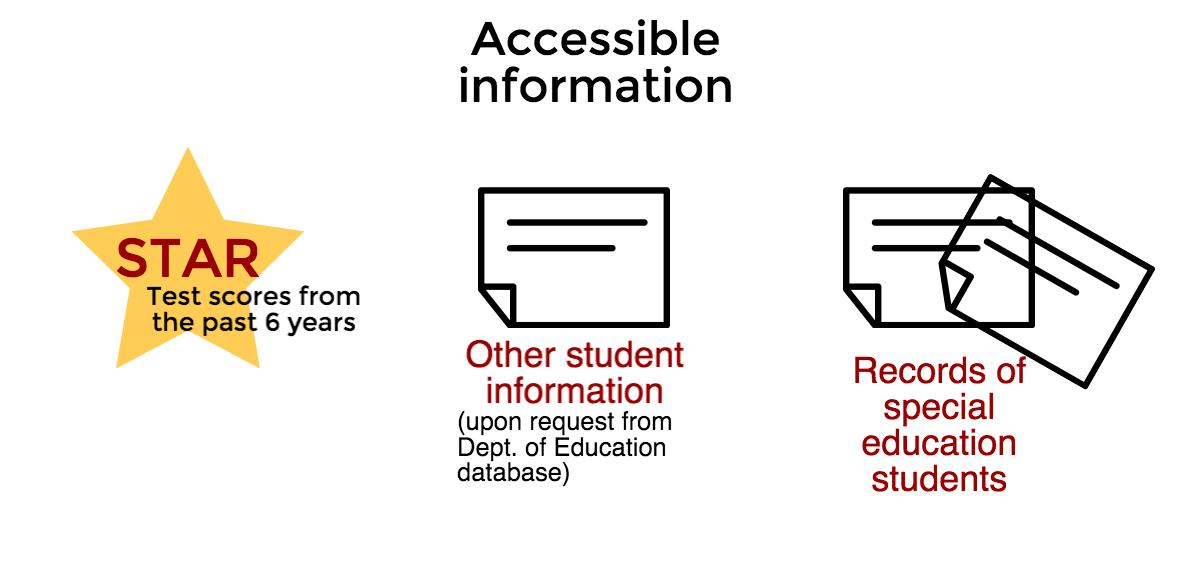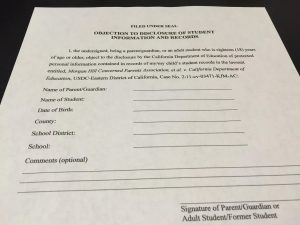The basics
Magistrate Judge Allison Claire signed an order on Jan. 25 that would have affected every public school student in California since 2008 by releasing student records to the Morgan Hill Concerned Parent’s Association. After backlash from parents, the judge has changed her decision, and records will not be sent to the association’s database, but the association will be able to view them. A long court battle between the California Dept. of Education and the Morgan Hill Concerned Parent’s Association led to the records release stated above. However, as of March 4, the records will no longer be given directly to the association. Instead, the California Dept. of Education will allow them to access the records of all students in the special education program and STAR test scores for the past six years and view other records with permission. 
The Morgan Hill Concerned Parent’s Association vs. California Dept. of Education case was filed on Dec. 29, 2011 and took place in Sacramento. The Parent’s Association commented to NBC San Diego that they wanted student records to use as data for their research concerning if those with disabilities in the public school system are given equal opportunities as those without. As the Mercury News stated, the association will now only have access to the student records through attorneys assisted by the Dept. of Education at the state level, including names, grades, addresses, test scores and more.
When the records were going to be released before the change in court order, an objection form was released. These objection forms would lead to the change in court order. As the Mercury News reported, an influx of forms caused the judge to change her mind.
Why does the Morgan Hill Concerned Parent’s Association want the records?
Trudy Gross is the Director of Educational and Special Services for FUHSD who worked on the official district statement and followed the case for some time. According the Gross, the association felt that students in the Morgan Hill Special Education program were not given the services that they were supposed to receive.
“In Special Education,” Gross said, “every student has to have what’s called a specialized education plan, and in that plan, you talk about what are the student’s strengths and challenges and then you create goals to address their needs, and then there are services that then help meet those goals.”
The Morgan Hill Concerned Parent’s Association said that the student records would help them research further into the opportunities given to students in the Special Education program.
It is unclear exactly what the records may have been used for in the argument, or how the information within the California Dept. of Education’s database that will be able to be accessed still will be used to build their case.
Why did the “opt-out” form make a difference?

Gross explained that turning in an “opt-out form” did not mean the same thing as opting your records out of being released. The form itself was actually an objection to the release, which would be taken into consideration by the judge, not really an opt-out form, as it had been portrayed in some cases.
“There will be value behind the objection forms,” Gross said before the change in ruling on March 4. “But the judge has not said how they will rule or review the objections that are received.”
Gross was right, the forms did have power. They overturned the ruling and ensured that records will not be disclosed.
While the Morgan Hill Concerned Parent’s Association will be able to see records for their research purposes, the records will not actually be transferred to their database. However, they will be able to be accessed by the Association under the eye of the California Dept. of Education.









